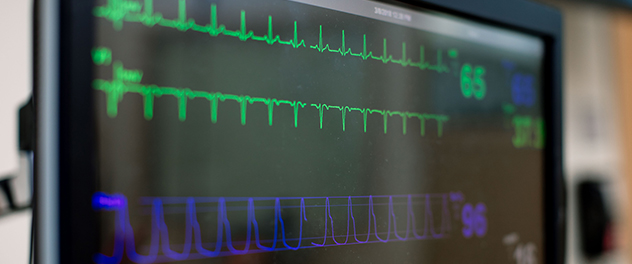-

Improving therapeutic options
Years of dedicated work in our lab is leading to the identification of new targets for rational drug design for the treatment of vascular disease.
Overview
The Cardiovascular Contractility and Signaling Laboratory is focused on investigating the molecular mechanisms that regulate the contractility of both smooth muscle and cardiac muscle in health and disease.
Led by principal investigator Frank V. Brozovich, M.D., Ph.D., our lab team applies state-of-the-art biochemical and biophysical techniques to investigate the signaling pathways that regulate both cardiac and smooth muscle contraction, and the changes in these pathways in disease states.
The results of our studies can be used for the development of novel therapeutics and rational drug design for patients with pulmonary arterial hypertension, heart failure and other cardiovascular conditions.
Our current research projects include:
- The regulation of smooth muscle and nonmuscle myosin in vascular smooth muscle, and the implications for vascular tone
- Understanding the mechanism for the vascular abnormalities associated with both heart failure with reduced ejection fraction and heart failure with preserved ejection fraction and preventing and treating these pathological abnormalities to improve morbidity and mortality for patients with heart failure
- Understanding the mechanism that results in idiopathic pulmonary hypertension and developing novel therapeutics for treatment
- Defining protein expression in the normal and failing human heart and the implications for therapy
- Read more about our research.
About Dr. Brozovich
Dr. Brozovich is a cardiologist at Mayo Clinic in Rochester, Minnesota, and a professor of medicine and of physiology at the Mayo Clinic College of Medicine and Science. He also holds several leadership positions, including serving as director of the Cardiovascular Disease Program for the Cardiovascular Fellowship in the Department of Cardiovascular Medicine. Dr. Brozovich's research interests include the molecular basis of cardiovascular disease and mechanisms and cell signaling that govern contractility. Using both animal models and human tissue, his work has defined the pathological signaling pathways associated with a number of diseases and has revealed the molecular mechanism to explain both the benefits and lack of benefits of current therapies for cardiac and vascular diseases.